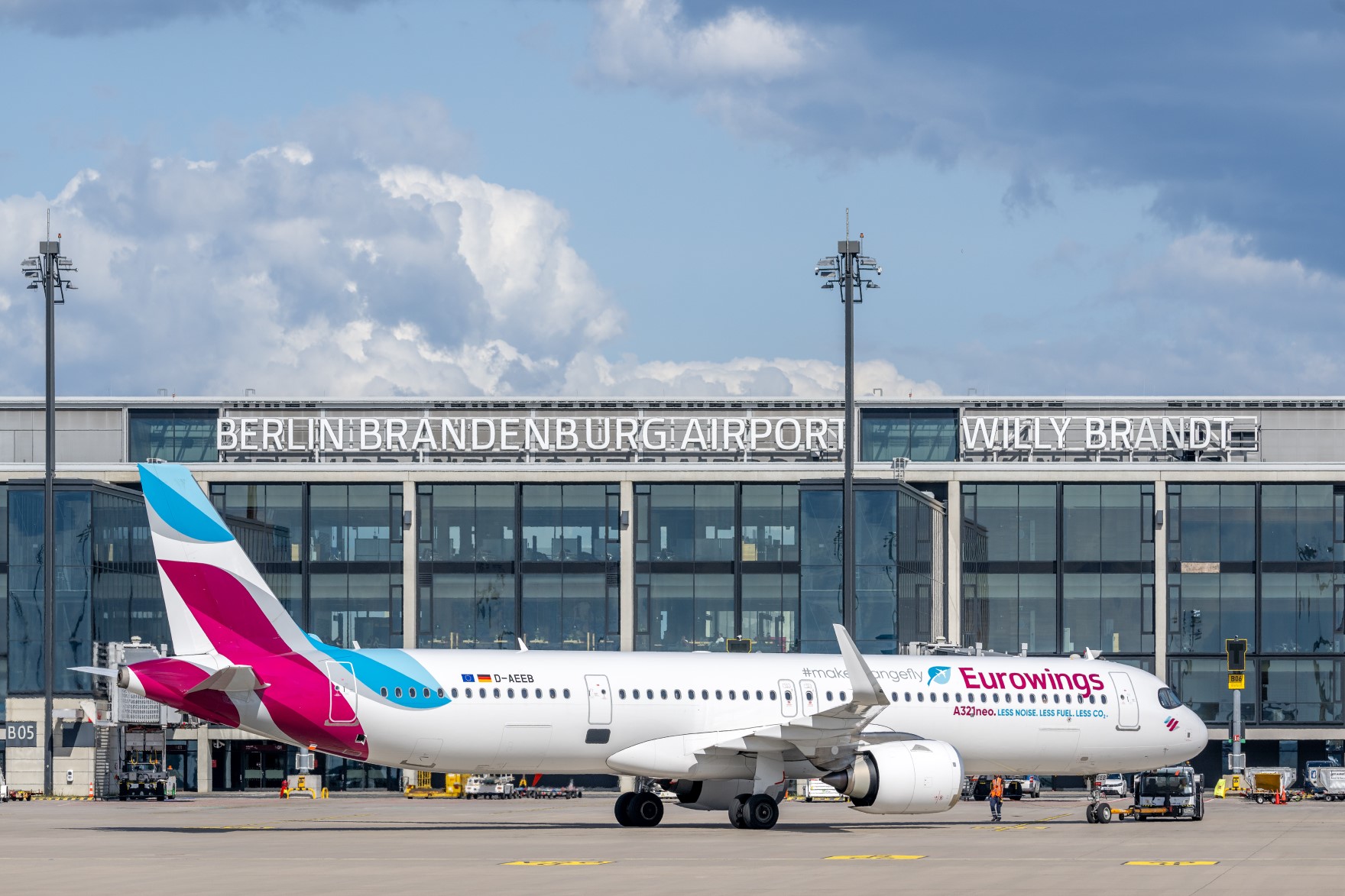- First Eurowings flight after partial renewal of the runway took off punctually at 7.05 a.m. this morning from Stuttgart to Berlin-Tegel
- Market leader Eurowings secures basic supply for important economic region Baden-Württemberg with its flight programme
- Eurowings again flies up to six times a week from Stuttgart to Hamburg and Berlin with immediate effect
 Eurowings flies out of Stuttgart again since this morning: After successfully completing renovation work on the runway at Stuttgart Airport, Eurowings flight EW2002, heading for Berlin-Tegel, took off punctually at 7.05 a.m. this Thursday morning as the first flight from Stuttgart. Due to the partial renewal of the runway, which was carried out in the period from April 6 until April 22, 2020, no passenger operation was possible in Stuttgart. Eurowings – like the other airlines in Stuttgart – had to temporarily pause its basic flight programme from Baden-Württemberg.
Eurowings flies out of Stuttgart again since this morning: After successfully completing renovation work on the runway at Stuttgart Airport, Eurowings flight EW2002, heading for Berlin-Tegel, took off punctually at 7.05 a.m. this Thursday morning as the first flight from Stuttgart. Due to the partial renewal of the runway, which was carried out in the period from April 6 until April 22, 2020, no passenger operation was possible in Stuttgart. Eurowings – like the other airlines in Stuttgart – had to temporarily pause its basic flight programme from Baden-Württemberg.
From Stuttgart, Eurowings, the market leader in Stuttgart, flies its passengers to Hamburg and Berlin up to six times a week each, thus ensuring basic service for the important economic region of Baden-Württemberg.
In addition to domestic flights from Stuttgart to Hamburg and Berlin, Eurowings also offers selected flights from its largest locations Düsseldorf, Hamburg and Cologne/Bonn in response to the current corona crisis. Due to the strong spread of the coronavirus in recent weeks and the resulting decline in bookings as well as numerous entry restrictions, Eurowings had to drastically adjust its flight schedule. The flight programme on offer was temporarily reduced to about ten percent of the previous capacity.
The Eurowings harvest worker flights will continue to be a focal point of the reduced flight schedule. Since the start of this “airlift for farmers” at the beginning of April, Eurowings has already flown more than 5,000 harvest workers from Romania to Berlin, Hamburg, Düsseldorf, Karlsruhe/Baden-Baden, Leipzig, and Nuremberg. Further special flights are planned in the coming days and weeks, more than 100 in total, to provide the best possible help to farmers in a very difficult situation and to secure the supply of fruit and vegetables in Germany.



